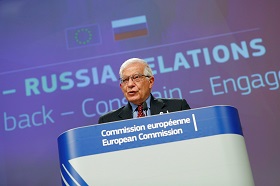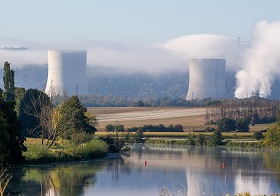After being delayed for a year due to the pandemic, the 2021 United Nations Climate Change Conference (COP26) finally took place from 31 October to 12 November 2021. This high-level political event came with high expectations, given the fact that the world is currently not on track to deliver on the vision of the Paris Agreement. This February, UN Climate Change published a report indicating that nations must redouble their climate efforts to limit global temperatures by 1.5C. Raising climate ambitions is particularly important since the pandemic put a hold to the environmental momentum since 2015. With countries focused on forging out an economic recovery plan and consolidating health measures, many expressed concerns that it will become increasingly difficult to comply with new environmental standards and nationally determined contributions to cut carbon emissions.
Despite these challenges, COP26 represents an opportunity to strengthen environmental diplomacy and renew commitments and pledges in line with the Paris Agreement. Can diplomacy rise to the challenge of the climate crisis?
They key words to qualify COP26 and its outcomes are: cautious optimism. Conducting successful diplomacy is a challenging task, sometimes requiring major compromises. Now, COP26 did not bring all the pieces of the puzzle together. Despite several promising initiatives from developing countries, everyone is not yet ready to fully embark on the climate journey. However, it initiated important discussions that will need to continue in the future and adjustment will be needed to consolidate or overturn certain trends.
Recommendations to consolidate the positive trends. First, it will be essential to ensure that China and the United States have a clear vision of their expectations from their new partnership, and make sure that there is a clear understanding of what their fair share of climate action should be—the future of climate action might rely on an effective tandem between Beijing and Washington. Second, to enhance the effectiveness of climate diplomacy, it will be important to align short term objectives with a long-term vision. This strategy will allow the international community to organize more regular talks and keep the momentum that is highly needed. Third, it will be necessary to frame future discussions with civil society to guarantee a continuous dialogue that can feed into upcoming high political events. Supporting the ongoing positive dynamic of public participation and empowerment is a major challenge for governments.
Recommendations to overturn the negative trends. First, it will be important to adjust the European Union’s communication strategy to clearly establish itself as a leader of the climate crisis. Communicating more clearly the EU’s involvement in the progress made during climate talks through a combination of outspoken advocacy and quiet diplomacy will prevent negative speculations from the outside and it might help Europe receive more support. Second, ensuring a full representation of all stakeholders and in particular those from the Global South is crucial. Since the populations most vulnerable to climate change are found in developing countries, it is necessary to allow for a just participation in climate diplomacy. Third, breaking the habit of going into overtime during climate negotiations will help send a different message to the outside world that world leaders actually have the future of the climate crisis under control. This strategy might generate more positive support from various stakeholders.
After being delayed for a year due to the pandemic, the 2021 United Nations Climate Change Conference (COP26) finally took place from 31 October to 12 November 2021. This high-level political event came with high expectations, given the fact that the world is currently not on track to deliver on the vision of the Paris Agreement. This February, UN Climate Change published a report indicating that nations must redouble their climate efforts to limit global temperatures by 1.5C. Raising climate ambitions is particularly important since the pandemic put a hold to the environmental momentum since 2015. With countries focused on forging out an economic recovery plan and consolidating health measures, many expressed concerns that it will become increasingly difficult to comply with new environmental standards and nationally determined contributions to cut carbon emissions.
Despite these challenges, COP26 represents an opportunity to strengthen environmental diplomacy and renew commitments and pledges in line with the Paris Agreement. Can diplomacy rise to the challenge of the climate crisis? This article discusses different perspectives of the diplomatic challenge that countries are currently facing. It explores both reasons for optimism and reasons for skepticism by taking into consideration the strategic opportunities at stake for the different parties involved in the process.
Three reasons for optimism
Strategic partnerships. COP26 saw announcements for further action and new strategic partnerships forming. For instance, the world’s two biggest emitters, namely China and the United States, announced their intention to strengthen cooperation to cut carbon emissions. This encouraging initiative shows that both countries further recognize and endorse their role in leading the efforts of the climate crisis. The period of detente between both powers will create opportunities for a roadmap for further cooperation. However, this must be approached with caution until it is backed by concrete action. This partnership raises questions considering that both countries are at different development stages, and it is not guaranteed that they can deliver equally. This should be a factor in deciding what the countries’ fair share of climate action should be.
Climate diplomacy. Several promising suggestions were made during the Conference that can pave the way towards a renewed climate diplomacy. This aspect is of particular importance since climate diplomacy currently lacks credibility in the eyes of many world leaders, as major government leaders did not even attend COP26. The United Nations Secretary-General brought forward the idea to convene annual high-level meetings under the auspice of the United Nations in an effort to “pick up the pace”. This proposition is an opportunity to regain the momentum and fast-track the progress towards the climate targets by strengthening the multilateral system thanks to a renewed sense of commitment. Reducing the time between different high-level events might raise a greater sense of responsibility. The future of climate diplomacy relies on its ability to adopt an aggressive course of action to create new avenues of cooperation.
Public empowerment. Another key objective of COP26 was to accelerate action through a closer collaboration with civil society and in particular the youth. During the Conference, young climate leaders came together in Glasgow with negotiators, policy makers and government officials from across the world, making their voices heard and demanding action. One of the objectives in the near future is to make those interactions as meaningful as possible by reflecting the arguments of the youth in climate change negotiations. Some of the positive trends observed during COP26 let us envision a brighter future for the empowerment of civil society. Given the unprecedented rise of youth activism worldwide, it is only logical that decision-makers decide to involve more prominently those who will be impacted more severely by climate change.
Three reasons for skepticism
European leadership. The different rounds of negotiations and discussions during COP26 were marked by a lack of European leadership, which was denounced by prominent political figures. From the perspective of the European Union, this year’s edition of the COP should have been an opportunity to showcase a strong leadership, convincing the world that strengthening the commitments within the Paris Agreement must go hand in hand with a green global recovery. The promising European Green Deal that was previously established should have given Europe the confidence to take on this leadership role. However, Laurence Tubiana, France’s former Climate Change Ambassador, stated that Europe was the missing leader of COP26, jeopardizing the outcomes of the Conference.
Further, European representatives seemed to have adopted a strategy consisting of limiting communication outside of COP26. The EU delegation came to Glasgow with the plan to promote adaptation finance to fill the current gap of over 20 billion dollars. Effective and strategic communication is an essential component of diplomatic processes in order not to leave room for speculations especially for an event of this magnitude. Other several contexts require a more careful approach, but the stakes of the climate crisis are too high to not keep informed the outside. By adopting a strategy of quiet diplomacy, the EU may have been discredited.
Representation. International restrictions related to the coronavirus pandemic have prevented important actors to participate in the discussions in Glasgow. Organizing such an event requires the representation of all relevant stakeholders. There has been a reported lack of attendees from the Global South. A spokesperson for COP26 estimated that only one-third of the usual number of participants representing the Global South has been able to attend the Conference. The Climate Action Network, a global alliance of more than 1,500 environmental campaign groups, anticipated the issue and called for the event to be postponed, citing concerns that it would be “impossible” to ensure a safe, inclusive and just global climate conference. The lack of representation may have undermined the event, by giving the opportunity for developed countries to bring forward their interests more strongly.
Deadlines. Going into overtime has become a habit at Climate Change Conferences, which are supposed to last for two weeks. The last climate negotiations, held in Madrid in 2019, were scheduled to end on a Friday, but were also extended. As negotiators were unable to conclude a deal within the given timeframe in Glasgow, much of the negotiations continued over the weekend. At COP26, the draft outcome document showed that significant disputes remained on the last day of the Conference over money and the speed of emissions cuts. This situation sends a signal that countries are not ready to make the necessary compromises, and this do not augur well for the future of the climate crisis. For climate diplomacy, finalizing talks within a strict timeline is crucial to get everyone on board and show that world leaders have control.
Conclusion and recommendations
They key words to qualify COP26 and its outcomes are: cautious optimism. Conducting successful diplomacy is a challenging task, sometimes requiring major compromises. Now, COP26 did not bring all the pieces of the puzzle together. Despite several promising initiatives from developing countries, everyone is not yet ready to fully embark on the climate journey. However, it initiated important discussions that will need to continue in the future and adjustment will be needed to consolidate or overturn certain trends.
Recommendations to consolidate the positive trends. First, it will be essential to ensure that China and the United States have a clear vision of their expectations from their new partnership, and make sure that there is a clear understanding of what their fair share of climate action should be—the future of climate action might rely on an effective tandem between Beijing and Washington. Second, to enhance the effectiveness of climate diplomacy, it will be important to align short term objectives with a long-term vision. This strategy will allow the international community to organize more regular talks and keep the momentum that is highly needed. Third, it will be necessary to frame future discussions with civil society to guarantee a continuous dialogue that can feed into upcoming high political events. Supporting the ongoing positive dynamic of public participation and empowerment is a major challenge for governments.
Recommendations to overturn the negative trends. First, it will be important to adjust the European Union’s communication strategy to clearly establish itself as a leader of the climate crisis. Communicating more clearly the EU’s involvement in the progress made during climate talks through a combination of outspoken advocacy and quiet diplomacy will prevent negative speculations from the outside and it might help Europe receive more support. Second, ensuring a full representation of all stakeholders and in particular those from the Global South is crucial. Since the populations most vulnerable to climate change are found in developing countries, it is necessary to allow for a just participation in climate diplomacy. Third, breaking the habit of going into overtime during climate negotiations will help send a different message to the outside world that world leaders actually have the future of the climate crisis under control. This strategy might generate more positive support from various stakeholders.







